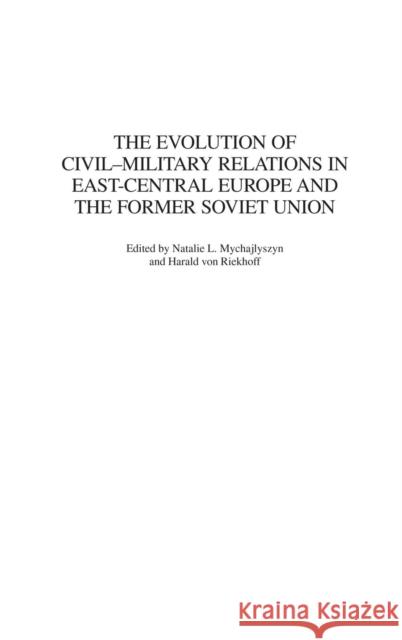The Evolution of Civil-Military Relations in East-Central Europe and the Former Soviet Union » książka
The Evolution of Civil-Military Relations in East-Central Europe and the Former Soviet Union
ISBN-13: 9780313315626 / Angielski / Twarda / 2004 / 256 str.
The Evolution of Civil-Military Relations in East-Central Europe and the Former Soviet Union
ISBN-13: 9780313315626 / Angielski / Twarda / 2004 / 256 str.
(netto: 243,00 VAT: 5%)
Najniższa cena z 30 dni: 254,10
ok. 30 dni roboczych
Dostawa w 2026 r.
Darmowa dostawa!
The dismantlement of the communist system of control of the military and its replacement with a democratic model is one of the most significant aspects of the post-communist transition in East-Central Europe and the former Soviet-Union. The success of democratic civil-military reforms is an important and underappreciated measure of the state of democratic transitions in these countries, and it also has important implications for and links with regional security and NATO relations. This book examines the state of democratic civil-military reforms in nine East-Central and former Soviet states: Czech Republic, Hungary, Poland, Estonia, Latvia, Lithuania, Bulgaria, Russia, and Ukraine.An examination of these states is of particular interest and importance given their varied relationship with NATO, a relationship that is influenced to a large extent by the amount of progress in reforming their post-communist system of control of their militaries. Following a comprehensive theoretical chapter on civil-military relations, the individual chapters consider the accomplishments as well as the outstanding shortcomings of democratic civil-military reforms. Overall, the book argues that the weaknesses apparent in all these countries in the implementation of the democratic norms of civilian control of the military require continued attention in order to strengthen not only the relationship with NATO (wither membership is already obtained or sought) but also regional security in general.











